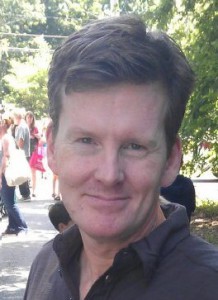 Monetary reform activist Wayne Walton of MtnHours.com joins us to talk about the hour money system and how it can be used as a dollar/yen/Euro/peso alternative to foster local business and rid the economy of usury and manipulation. We discuss the ideas presented in his Kindle book (2.99), Hour Money Jubilee: How to create immediate abundance for humanity, and how people can apply this in their own community for a positive, solutions-based approach to getting at the root of the money problem.
Monetary reform activist Wayne Walton of MtnHours.com joins us to talk about the hour money system and how it can be used as a dollar/yen/Euro/peso alternative to foster local business and rid the economy of usury and manipulation. We discuss the ideas presented in his Kindle book (2.99), Hour Money Jubilee: How to create immediate abundance for humanity, and how people can apply this in their own community for a positive, solutions-based approach to getting at the root of the money problem.
Podcast: Play in new window | Download

Ancient wisdom reveals solutions for immediate abundance for humanity. This book uses sacred economics to create a victory plan not phony austerity measures and fear mongering. History repeats and we face the same debt problems which existed throughout ancient history. Powerful, actionable solutions are available without displacement, despair and hardship. We just need to ignore loyal opposition gate keepers who are hired to protect the status quo.
Real revolution requires usury-free money creation and lending. Interest based economics creates an un-payable debt Ponzi. Jews, Christians and Muslims all forbid usury before being corrupted by the “money power”. We will actually have far more money, lending and banking without interest.
Discover how interest is a mathematic fraud like a Ponzi. Discover how usury-free societies offer a 15-25 week work year. Learn this information yourself so that you are no longer deceived by the “money power”. Bring this message of hope and abundance to your family, neighbors, friends and countrymen. Become the leader that you were meant to be.






